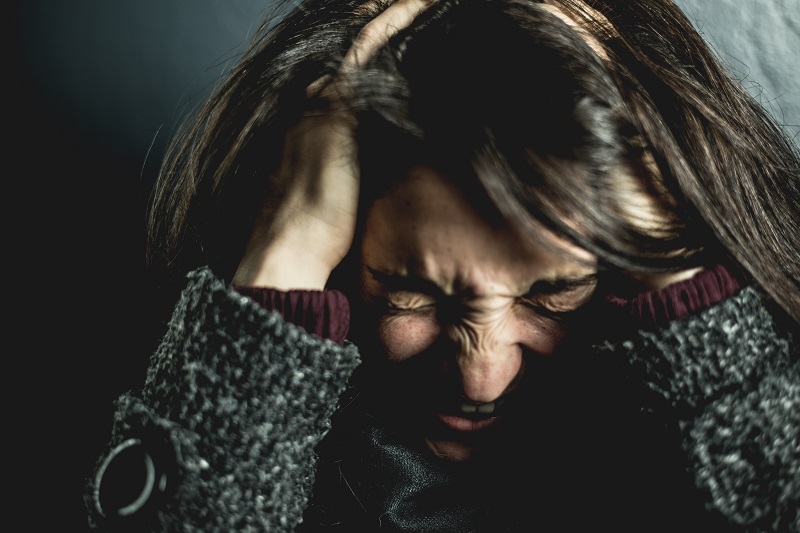In the modern whirlwind of life, anxiety has become an all-too-common companion, casting shadows on our well-being.
Amidst this struggle, counselling emerges as a guiding light, offering a transformative journey towards understanding, managing, and ultimately alleviating the burdens of anxiety.
By delving into the complexities of the mind and providing tailored strategies, counselling for anxiety paves the way for individuals to regain control, fostering a life characterized by serenity and resilience.
What is Anxiety?
Anxiety is a complex and multifaceted emotional response characterized by feelings of worry, unease, and apprehension. It is a natural and universal human experience, often triggered by situations that are perceived as stressful or threatening.
While occasional anxiety is normal and can even be beneficial in certain situations, such as preparing for a challenging task, excessive and chronic anxiety can significantly impact a person’s well-being and daily functioning.
Anxiety can manifest in various ways, including physical symptoms like increased heart rate, trembling, sweating, and muscle tension, as well as psychological symptoms such as racing thoughts, restlessness, and a sense of impending doom.
Different anxiety disorders, such as generalized anxiety disorder, social anxiety disorder, panic disorder, and specific phobias, have distinct patterns of symptoms and triggers.
1. Anxiety Symptoms
Symptoms of anxiety can vary widely depending on the individual, the specific type of anxiety disorder, and the context in which the anxiety is triggered. Common symptoms of anxiety can be categorized into physical, emotional, cognitive, and behavioural domains. It’s important to note that experiencing some of these symptoms occasionally is normal, but when they become persistent and interfere with daily life, they might indicate an anxiety disorder. Here are some common symptoms:
2. Physical Symptoms
- Increased heart rate or palpitations
- Rapid breathing or shortness of breath
- Muscle tension and restlessness
- Sweating, trembling, or shaking
- Upset stomach, nausea, or digestive issues
- Fatigue and difficulty sleeping
3. Emotional Symptoms
- Excessive worry or fear about future events or everyday situations
- Feeling on edge or a sense of impending danger
- Irritability or mood swings
- Difficulty concentrating or mind going blank
- Feelings of dread or doom
- Irrational fears or phobias
4. Cognitive Symptoms
- Racing thoughts or a sense of mental chaos
- Overthinking and inability to control worrying
- Catastrophic thinking, expecting the worst outcome
- Negative self-talk and self-doubt
- Difficulty making decisions
5. Behavioral Symptoms
- Avoiding situations or places that trigger anxiety
- Ritualistic behaviours or compulsions (common in obsessive-compulsive disorder)
- Difficulty initiating or maintaining social interactions (common in social anxiety)
- Panic attacks, characterized by sudden and intense fear
- Excessive use of substances (e.g., alcohol or drugs) to cope with anxiety
8 Ways Therapy Can Help in Anxiety
Therapy can be highly effective in helping individuals manage and alleviate anxiety by providing a supportive and structured environment to address the root causes and develop coping strategies. Some ways therapy can help in anxiety include:
Cognitive Behavioural Techniques (CBT): Therapists teach individuals to identify and challenge negative thought patterns that contribute to anxiety. This helps reframe distorted thinking and reduce anxious reactions.
Exposure Therapy: Particularly effective for phobias and certain anxiety disorders, exposure therapy involves gradually and safely exposing individuals to their fears, helping them build tolerance and reduce avoidance behaviour’s.
Mindfulness and Relaxation Techniques: Therapists teach mindfulness and relaxation exercises that help individuals stay present, manage racing thoughts, and reduce physical tension associated with anxiety.
Identifying Triggers: Therapists help individuals identify specific triggers that worsen anxiety, allowing them to develop strategies to manage or avoid these triggers.
Stress Management Skills: Individuals learn effective strategies to manage stressors in their lives, including time management, setting boundaries, and practicing self-care.
Communication Skills: For social anxiety, therapists may work on improving interpersonal skills and communication techniques, helping individuals feel more confident in social situations.
Mediation and Psychoeducation: Therapists may explain the neurobiological aspects of anxiety, helping individuals understand the physical basis of their symptoms.
Long-Term Prevention: Therapy equips individuals with skills that can be applied throughout their lives to prevent anxiety from recurring or escalating.
It’s important to note that different types of therapy, such as cognitive-behavioural therapy (CBT), dialectical behaviour therapy (DBT), exposure therapy, and mindfulness-based therapy, can be tailored to an individual’s specific needs.
The effectiveness of therapy often depends on the individual’s willingness to engage in the process, the therapeutic relationship, and the commitment to practice learned skills outside of sessions.
How to Overcome Anxiety?

Overcoming anxiety requires a multi-faceted approach that combines self-care practices, professional support, and lifestyle adjustments. Here’s a comprehensive outline to guide you:
1. Seek Professional Help
Consult a mental health professional, such as a therapist or counsellor, for an accurate diagnosis and personalized treatment plan.
2. Therapeutic Techniques
Engage in therapy, such as cognitive-behavioural therapy (CBT), exposure therapy, or mindfulness-based therapy, to learn coping strategies and address underlying causes.
3. Practice Self-Care
Prioritize sleep, maintain a balanced diet, and engage in regular physical activity to support your overall well-being.
4. Stress Management
Develop healthy stress management techniques like meditation, deep breathing, progressive muscle relaxation, or yoga.
5. Mindfulness and Meditation
Practice mindfulness and meditation regularly to stay present, reduce rumination, and promote emotional regulation.
6. Limit Stimulants
Reduce caffeine and alcohol consumption, as they can exacerbate anxiety symptoms.
7. Identify Triggers
Recognize and manage triggers that worsen your anxiety. Create strategies to cope with or avoid them.
8. Challenge Negative Thoughts
Reframe negative thought patterns through cognitive restructuring, replacing them with more realistic and balanced thinking.
9. Social Support
Connect with friends, family, or support groups to share your feelings and receive understanding and encouragement.
10. Hobbies and Relaxation
Engage in activities you enjoy, such as hobbies, art, music, or reading, to provide a healthy distraction from anxious thoughts.
11. Professional Development
Enhance your skills and confidence through continuous learning and personal growth, boosting self-esteem.
12. Limit Screen Time
Reduce exposure to news and social media, which can contribute to anxiety. Allocate tech-free moments in your day.
Overcoming anxiety is a journey that varies for each individual. It’s essential to combine strategies that work best for you and to consistently practice self-care and self-compassion. If your anxiety is severe or impacting your daily life significantly, don’t hesitate to seek professional help.
Conclusion
In the intricate mosaic of life, anxiety can cast shadows over our well-being, but armed with understanding and resilience, its grip can be loosened. By embracing a holistic approach that combines self-care, professional guidance, and mindful practices, we pave a path to reclaim our inner peace.
While the journey may be challenging, each step taken towards managing anxiety is a testament to our strength and determination. Through self-discovery, therapeutic support, and a commitment to positive change, we can cultivate a life illuminated by courage, resilience, and the tranquil light of a calmer mind.
Frequently Asked Questions About Anxiety
Counselling provides a safe space to unravel the roots of anxiety, offering tailored strategies to reframe thought patterns, develop coping mechanisms, and foster emotional resilience, enabling individuals to navigate life’s challenges with greater ease and regain a sense of balance and tranquillity.
Deep Breathing: Practice slow, deep breaths to calm the nervous system and reduce physical tension.
Grounding Techniques: Engage your senses by focusing on what you see, hear, feel, taste, and smell in the present moment.
Positive Self-Talk: Challenge negative thoughts with rational and compassionate self-talk.
Progressive Muscle Relaxation: Tense and release muscle groups to release physical tension and promote relaxation.
Anxiety counselling is a therapeutic process where trained professionals help individuals explore the causes of their anxiety, develop effective coping strategies, and provide support to manage symptoms. Through personalized guidance and techniques, it aims to empower individuals to navigate anxiety’s challenges and improve overall well-being.
Engage in mindfulness and deep breathing exercises, prioritize self-care with regular exercise, sleep, and relaxation techniques to effectively alleviate anxiety.












